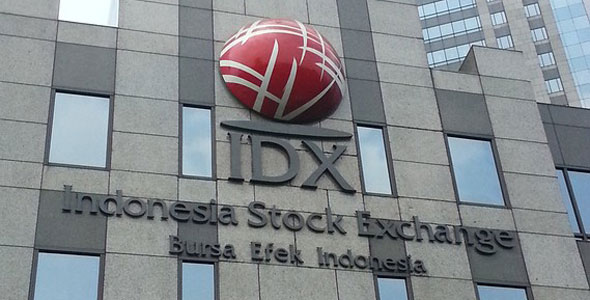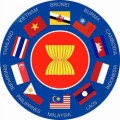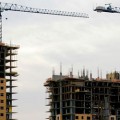Opportunities for Global Investors in Indonesia
When Asian governments want to give extra stimulus to their economies, they often opt for massive spending on infrastructure – roads, railways, ports, air terminals, bridges, power plants, hospitals. That generates immediate demand for labour and locally-produced materials. Unlike the welfare handouts preferred in the West, it’s a long-term investment in greater economic output.
Unfortunately, it’s sometimes overdone. Japan became notorious for a splurge on wasteful spending that included bridges to islands with tiny populations, highways to nowhere ending in dirt tracks, and empty government buildings. More recently, and currently, China has been accused of massive over-investment in “ghost cities, bridges to nowhere and empty new airports.”
Other Asian nations present a very different story.
India’s roads, ports and railways are overwhelmed, with power generating capacity so inadequate that blackouts are commonplace, because of serious lack of investment due to political congestion.
Indonesia’s economy is similarly hog-tied by consistent under-investment in infrastructure. In 2011 spending on it amounted to only 1.7 per cent of national output, compared to 3.6 per cent in Thailand, 5.4 per cent in Malaysia.
In the capital, Jakarta, traffic jams are so serious that the local government is introducing an “every other day” rationing system for private car travel based on alternate odd/even final digits of numberplates. Ports are clogged, power supplies are interrupted, and public transport services are very poor.
However, this is about to change in a big way. Major legal obstacles to fast acquisition of land for state projects have been swept away. Government is encouraging private-sector investment in ports and railways.
President Susilo Bambang Yudhoyono has announced a $200 billion plan for spending on infrastructure, including paving and upgrading the highways network (4,500 kms last year), new railways for freight (such as coal and palm oil) and passengers, as well as upgrading of airports, power stations and hospitals.
Businesses say spending is picking up speed. Eric Bellman reports: “Construction companies are taking out big infrastructure loans and cement sales are soaring with all the new projects getting off the ground. General Electric Co. says it is receiving record orders for train locomotives, hospital equipment and airplane engines.”
The potential for future investment is huge. One example: According to Deutsche Bank, just to raise power-generating capacity to what’s already needed, plus meet growth in expected demand to 2019, requires Indonesia to pump in 35 times its current annual investment.
Of course, infrastructure is not the only area of opportunity for international investors in Southeast Asia’s largest economy, which is growing at 6 per cent a year. Its shares are also a play on natural resources (coal, palm oil, natural gas and industrial minerals), and on surging consumer demand from an exploding middle class.
Unlike China and India, Indonesia’s stock market is wide open to international investors should you wish to invest directly (although of course there are many Indonesia ETFs, mutual funds and trusts available).
A year ago I suggested seven Jakarta-listed shares worth considering. Four have done well, rising in value between 23 and 36 per cent. Three proved to be laggards, but even those are trading at well above their 52-week lows.
Not surprisingly, one of the best performers has been and continues to be the infrastructure stock, Semen Gresik [SMGR], the nation’s biggest cement producer. Other excellent performers have been the small-cap Surya Citra Media [SCMA], the highways builder and operator Jasa Marga [JSMR], and the world’s largest noodle maker, Indofood Sukses [INDF].
The three laggards are all now catching up fast – the huge coal miner Adara Energy [ADRO], the diversified conglomerate Astra International [ASII] and the consumer demand play Unilever Indonesia [UNVR].
Additional stocks that I now suggest are:
Arwana International [ARNA], another small-cap. A ceramics tile producer with four plants running flat out to keep up with demand, its earnings have been growing at an average of 27 per cent a year, and continued to grow right through the global recession. Its share has soared in price over the past year, but doesn’t yet look overvalued.
Multi-Bintang [MLBI] has the leading domestic beer brand Bintang, as well as marketing Heineken and Guinness. It has consistent and very strong earnings growth averaging 47 per cent a year, but still trades on a dividend yield above 2 per cent, twice covered. However, at about $80 apiece on the Jakarta exchange, the effective minimum investment is $32,000.
Attractive stocks in drugs, property, banking:
Kalbe Farma [KLBF] is a pharmaceutical company making and distributing prescription branded and generic drugs, consumer health and nutritional items, and animal health products. It has delivered very good and consistent earnings growth.
Lippo Karawaci [LPKR] is a property developer with a particular focus on private hospitals, a strong growth sector throughout South/East Asia. It came through the global crisis well, and its earnings growth has accelerated.
Bank OCBC Nisp [NISP] is a small bank with an excellent earnings growth record averaging 24 per cent a year. It’s not a dividend payer and trades on a PE of about 13.
Indocement [INTP] is the second-largest cement producer, with an even better earnings growth record than Semen Gresik. It currently trades on a lower yield of just above 1 per cent, but that’s nearly five times covered.
Because of its strong domestic consumption, which still accounts for 65 per cent of economic activity, Indonesia is well cushioned against any weakness in the world economy impacting on its exports. And foreign direct investment continues to pour in.
In its latest regional review, Indonesia is one of only two markets in East Asia recommended for overweight positions by HSBC Global Research (the other is South Korea).
Despite its well-known problems of infrastructural congestion and endemic corruption, Indonesia still looks to me to be one of the best long-term opportunities for international investors.
see the article: A Boom out East
CopyRight – OnTarget 2013 by Martin Spring











